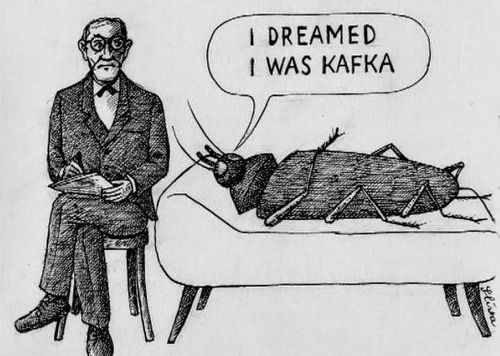What Does Kafkaesque Actually Mean?
Jul 13, 2019 • 64 views
It was observed by the Merrian-Webster, the dictionary publisher, that shortly afterward ‘The Vegetarian’ by Han Kang won the Man Booker International Prize there was a sunned spike in the searches for the word ‘Kafkaesque’. The reason behind it was that it “has been described by its British publishers (and by a number of reviewers) as Kafkaesque”.

This might not be a new term for many, but quite a few people have misused the adjective, as also pointed out by a TED-Ed animated video by Noah Tavlin. Incorrect usage of the word has resulted in the dilution of its meaning.
What makes something Kafkaesque?
If you go by the dictionary meaning of the word (Oxford Dictionaries), it would describe it as "oppressive or nightmarish qualities,". The word finds its root from the work of Franz Kafka, Prague-born author, his work like The Metamorphosis and The Trial has been one of the most haunting and original pieces of literature one can come across. In The Metamorphosis, the protagonist is transformed into a vermin and the first thought that crossed his mind after waking up was to reach his work on time. The Trial portrays the exploration of an unnecessary exhaustive bureaucratic machinery through the lenses of the protagonist. It is theorized by many scholars that the theme of sudden horrific arbitrary judgement was the result of his relationship with his father. In The Judgment, the protagonist’s father after been tucked in, suddenly recovers out of his miserable state and denounces him for betraying his friends and family and condemns him to death by drowning.
Kafka’s work often portrays the life of an average working man, and the absurd amount of work that is levied on him. It would not be false to say that he drew heavy inspiration from his own life struggle as a working man as he doesn’t fail to show up in his work. In the short story ‘Poseidon’, the Greek god Poseidon is shown as man so busy that he is swamped with paperwork all day and doesn’t have time to explore or enjoy his underwater domain. The joke here is that not even a God can cope up with the amount of work required by the modern workplace. As correctly elucidated by the video by Noah Trevor, it is not simply the absurdity of the system alone but the ironical reaction of the character to it. Political theorist Hannah Arendt decribes this kind of scenario as a ‘tyranny without a tyrant’.
